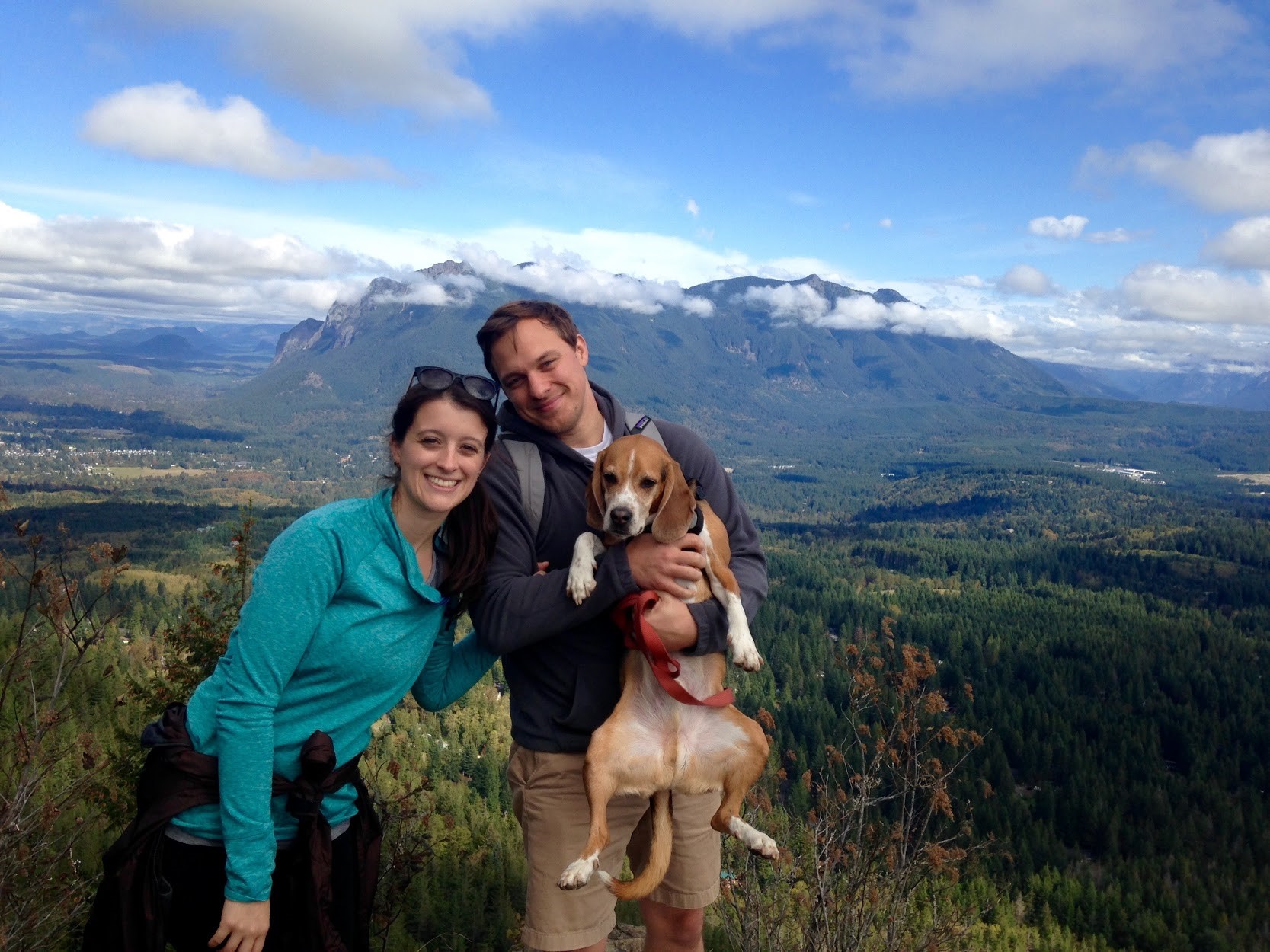
Catherine Seidelman (class of 2010), Will Seidelman (class of 2009), and Dexter
Will Seidelman, Class of 2009
Major: Psychology
Minor: Philosophy
Manager, User Research AmazonTransportation and Recipient Experience at Amazon *

I currently work for Amazon, but the opinions below are my own and do not necessarily represent Amazon’s position.
What was your childhood like?
We moved several times before ending up in the bluegrass state. I was interested in technology early in life and my parents fostered that desire. In high school, I played a KY state tournament basketball game in Rupp Arena, I do not think Coach Cal would have been particularly impressed with my performance that day.
How did you wind up at UK? Why did you select Psychology as your major?
As a Kentucky resident, I viewed UK as the best choice in terms of ROI for my education, especially with the KEES program. I chose psychology after spending my first couple of years without declaring a major. I had taken a couple introductory psychology classes at that time and found myself fascinated by psychology, especially cognitive psychology and human factors.
Tell us a little bit about your first job, after graduation.
My first job would have been as a TA/RA in graduate school. I interned at GE Appliances just after completing my M.S. and received a fantastic opportunity to lead user research for GE as my first job outside of academia. In that role, I was able to develop a user research program for GE Appliances.
How did your major prepare you for your career?
My major provided me with a set of tools that I have been able to apply in all of my roles. Fundamental psychological theories of cognition, experimental design, and quantitative / qualitative data analysis methods are examples of knowledge that I get to apply every day and would have been extremely difficult to learn on the job. In addition, several of my classes in philosophy and psychology helped develop general critical thinking and problem-solving skills which are invaluable in my current role.
What were you looking for when you went on to work for Amazon? What is your favorite part of your current role?
My main drivers were that I wanted to work in a fast-paced environment where I could be challenged, have opportunity to grow, and to work on products, services, and businesses with difficult problems to solve at scale.
My favorite part of my current role is that it provides the above.
What is the best interview question you were ever asked?
Although I can’t share specific examples of questions we use at Amazon, I can say that my favorite questions are all based on diving into previous behavior, and are also the only type of questions asked at Amazon during in-person interviews. Walking through a previous situation, task, action, and result with a candidate can illuminate how they approach problems, highlight specifics of what they drove in the development of a solution, and the impact that it resulted in. I find these questions to be worth far more than any brain-teaser, or hypothetical question in helping to predict how someone will perform and if they will succeed in a new role.
There are no tricks to the interview process at Amazon, and we attempt to be transparent about it which students can read more about here: https://www.amazon.jobs/en/landing_pages/interviewing-at-amazon
What advice do you have for current undergraduates?
I have three primary pieces of advice – 1) find something that truly interests you in your undergraduate work, 2) seek out opportunities to work on projects that demonstrate your ability to solve problems in your desired field, and 3) find a mentor or mentors who are invested in seeing you grow and succeed. Of these, mentorship may be the most important. I was lucky to have several during my time at UK, and still attribute much of any success I may have had to Dr. Melody Carswell, whom I worked with in my undergrad and grad research.
What would you say - or how do you look back and evaluate - the return on investment from your Psychology degree in your life and career today?
Any achievements are a combination of skill, opportunity, and a large measure of luck. No one can help with luck, but I believe that dollar for dollar, my time at UK was a great investment for improving my skills and opportunity. My degree in particular provided a great scaffolding on how to approach problems, think critically, and deliver solutions. When looking to hire someone onto my team, I look for critical thinking and autonomy more than any one particular functional skill.
